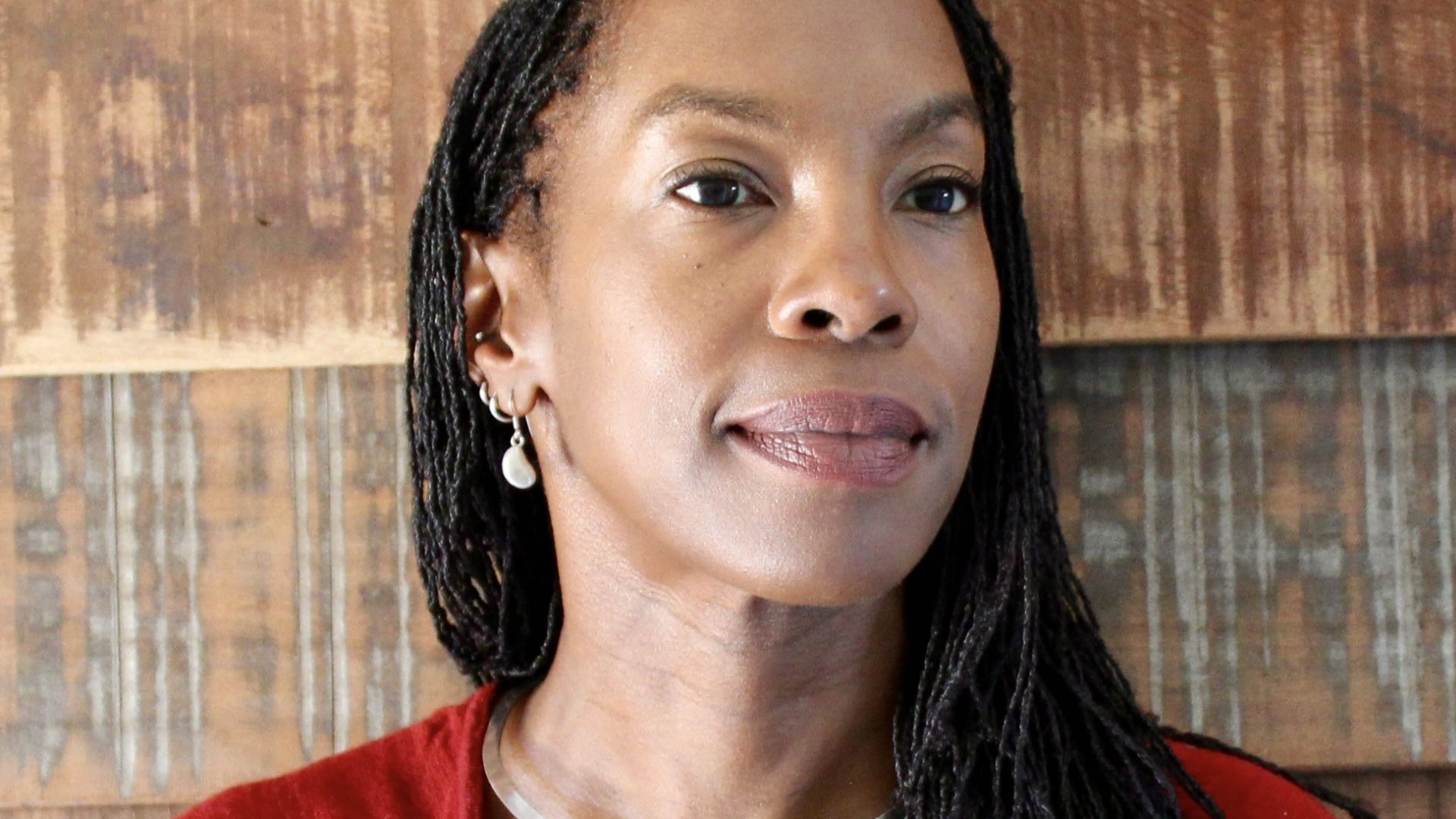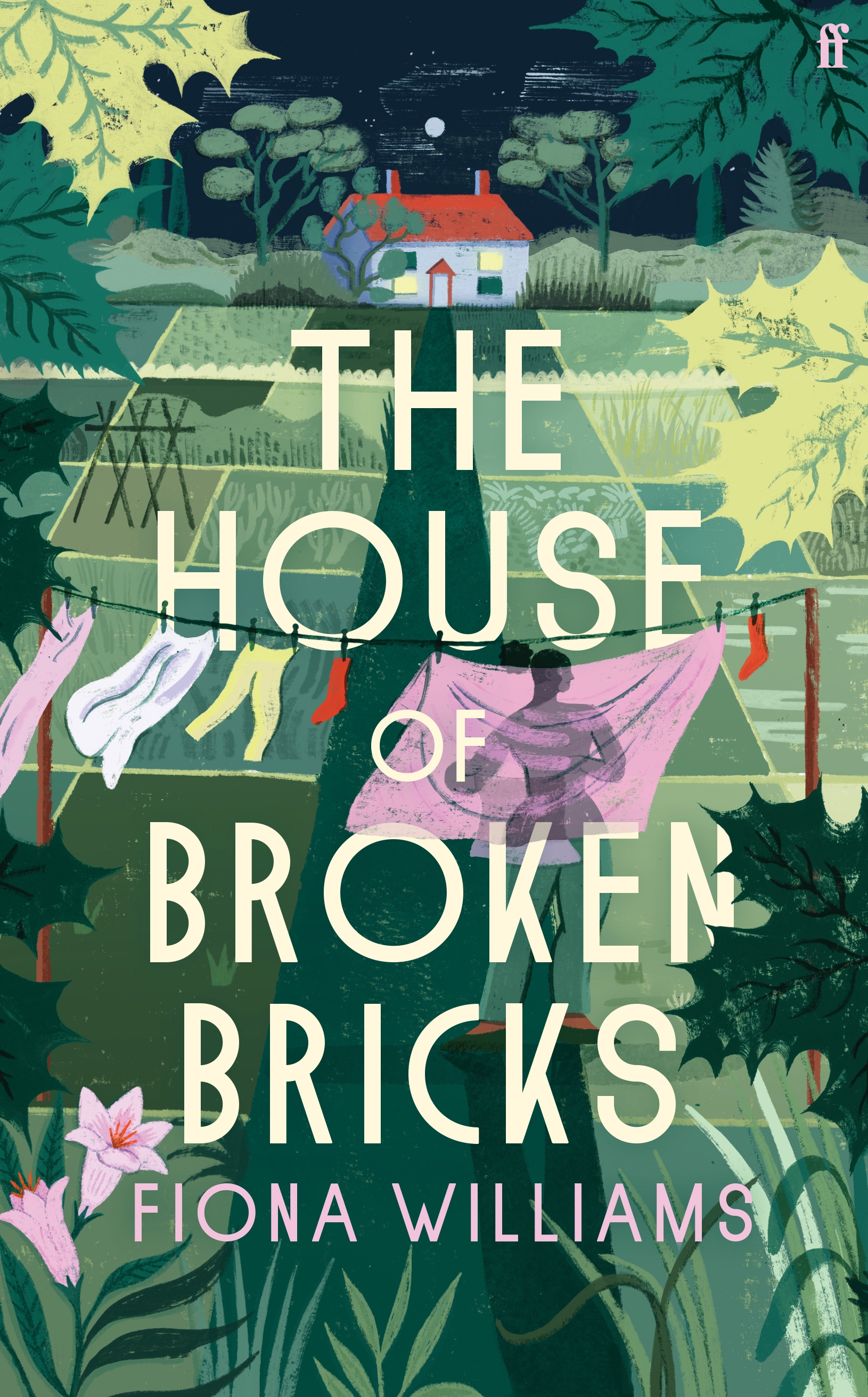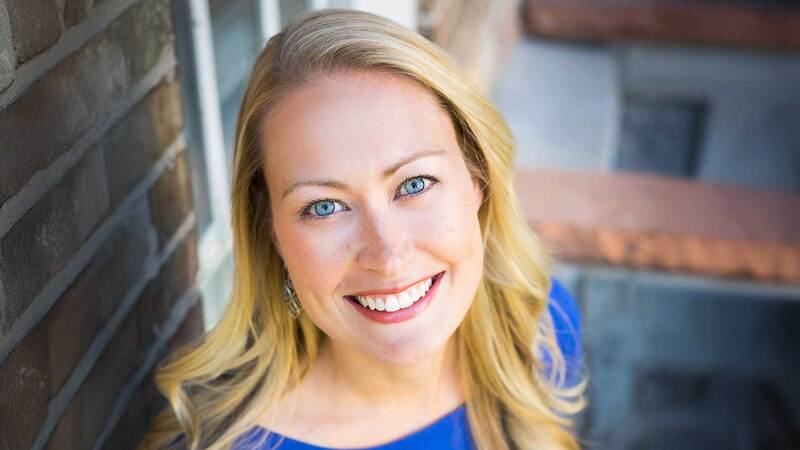You are viewing your 1 free article this month. Login to read more articles.
Fiona Williams in conversation about her debut novel exploring ideas of home, grief and crisis
 Caroline Sanderson
Caroline SandersonCaroline Sanderson is a non-fiction writer, editor and books journalist. Her books include a travel narrative, A Rambling Fancy: in the F ...more
Fiona Williams’ book has been selected as Faber’s superlead début fiction title for winter 2024.

Caroline Sanderson is a non-fiction writer, editor and books journalist. Her books include a travel narrative, A Rambling Fancy: in the F ...more
"Ain’t nothing wrong with being broken. Nothing at all. You’re like these houses, not a whole brick in ’em and look how strong they are.”
The deep, enduring bonds that hold our families together and help us weather the storms of life are at the centre of The House of Broken Bricks, an exquisitely written, richly layered first novel by Fiona Williams. Faber’s superlead début novel for winter 2024 and the winner of the 2021 Bridport Peggy Chapman-Andrews First Novel Award, it is the story of a time of crisis, grief and fracture in the lives of mixed-race couple Tess and Richard and their young “rainbow” twin sons, Max and Sonny; one white-presenting, the other Black.
The relationship between the brothers is beautifully drawn, and also allows Williams to explore the lives of two boys whose contrasting appearances mean their experiences of life are very different, despite their kindred childhoods.
The family lives in a crooked house on the Somerset Levels, on precarious land prone to flooding. “The whole house smells musty, like dirty laundry mixed with stale bread”, in Max’s words. As they battle through the elements during a long winter, with too many things left unsaid, Tess considers fleeing back to her native London while Richard fights to get his winter crops planted rather than deal with a discussion he cannot bear to have. Meanwhile, at the age of 10, white-presenting twin Max is contending with a profound crisis of identity with which his parents are struggling to support him.
It’s been a whirlwind. I haven’t caught up mentally at all
Williams appears on Zoom apologising for the empty, echoey room around her. Only days previously, she and her husband and their two children upped sticks from a village on the afore-mentioned Levels, to a new home on the outskirts of Exeter where she is currently doing a PhD in creative writing at the university. “I’m having a bit of a midlife Renaissance!”, she laughs. She tells me she is still in denial about the fact that her début novel is about to be published and dissolves into happy tears when I ask her how it felt to win the Bridport Prize. “It’s been a whirlwind. I haven’t caught up mentally at all. I’m amazed that I finished a novel. And that it won something and that people want to read it. I think I’ll be amazed for the rest of my life!”
Remarkable success
Given that The House of Broken Bricks was her first attempt at creative writing, Williams’ fast-track success is indeed remarkable: the novel was acquired by Faber in a swift pre-empt, just prior to London Book Fair 2023. Originally from south-east London, Williams’ urban childhood was characterised by a love of reading and of nature. “We watched David Attenborough’s programmes religiously, and every year we would go to W H Smith in Catford and I’d choose an animal encyclopaedia for Christmas and then I’d spend ages drawing the pictures.”
Her first degree in Biological Sciences led to her working as a medical writer for a time, and after living abroad for a few years, she and her husband settled in his native Somerset. It was in her early 40s, after the birth of her children, that she began to write fiction. “I think that selfish clock was ticking really loudly—what about me? What do I want to do? I’d just lost my mum, which was incredibly hard, and I think I had a lot going on internally and mentally. But I had also grown to love the landscape of the Levels—at that time we were living in a house very much like the one in the book.
Although my parents are from Jamaica, I am from the UK; nowhere else. Being in London you don’t have to prove that, it’s just accepted
“And I think I wanted some way of collecting all my feelings together. So I started to try and write but quickly realised that it would be a challenge to do so on my own with a full-time job and two kids at home.” Williams applied to do a one-year Creative Writing MA at Bath Spa University, during which she fleshed the novel out more fully.
Despite it being Covid year, with all its challenges, including home-schooling, “the story just kept coming out”, she tells me. “I had a vision in my head that it would take place against the cycle of the seasons. I wanted to capture the landscape and the natural world, but also to bring in some of my own experience of how it feels to move from London and settle somewhere else to the point where it starts to feel uncomfortable to go back to a place that used to be your home”.
While the novel is not autobiographical, the lyricism of its writing channels its author’s deep affinity for the countryside and in particular the part of the West Country she now calls home. It also reflects Williams’ own journey as a Black woman from the city, putting down roots in a very rural place where no one looks like her. In the novel, Tess reels from “setting off the feverish village drums” when she first appears on the school run. “Nothing could have prepared me for… being looked at in such a penetrative way”.
No going back
“It’s complex. I would never go back to London but it’s not always easy,” reflects Williams. “Although my parents are from Jamaica, I am from the UK; nowhere else. Being in London you don’t have to prove that, it’s just accepted. But in the countryside there’s a sense of a time warp where people haven’t quite caught up and you still have to convince people you are British. I think I’ve found it easier than other people might have because my husband and I have been together a long time, and he was born in the village where we lived. So I had been coming here for years already and I knew what I was walking into. Also I’m a very tolerant person. It’s a hard thing to say in a way but people often say things unintentionally without any malice intended.”
Extract
Sonny
Sometimes there are no dreams to dream. Night-time brings other things, and we must wait patiently until it’s over. In the kitchen, chamomile clouds drift across the ceiling while Mum hides behind her mug of tea, soothed by the lullaby of the washing machine. It will soon be morning. My feet don’t make a sound as I slide through the garden on frosted grass. I’m lost inside the blackness of a new moon. Wood pigeons puff themselves up in the cider apple trees and watch me in curious silence. I tread lightly past rushes, the last of the meadowsweet and loosestrife and dying stinging nettles, to where the river twists itself into a silver ribbon. Cold water soaks into my skin. I let it carry me as I listen to the music of the stars and the kree kree kree of little egrets until at last, she comes, her tea drunk, laundry basket in her arms, headscarf tightly wrapped. Like a fearful animal, she tiptoes on slippered feet with her clothes pegs, dark eyes looking inwards. She’s too afraid to see how my legs have rooted deep into the riverbed. Eels swim between my knees. When I call for her, I know she sees me.
While firmly rooted in the present day, The House of Broken Bricks also pulses with an undercurrent of myth and the supernatural. Williams has an abiding interest in the folklore of British countryside: her ongoing PhD thesis focuses on multi-cultural identity and belonging and its connection to folk tales. “The subject is also shaping my next novel which I’m really excited about. I love rural life, and I love the rural conversation about place and belonging in landscape. I think that’s something that’s always going to be close to whatever I do.”










